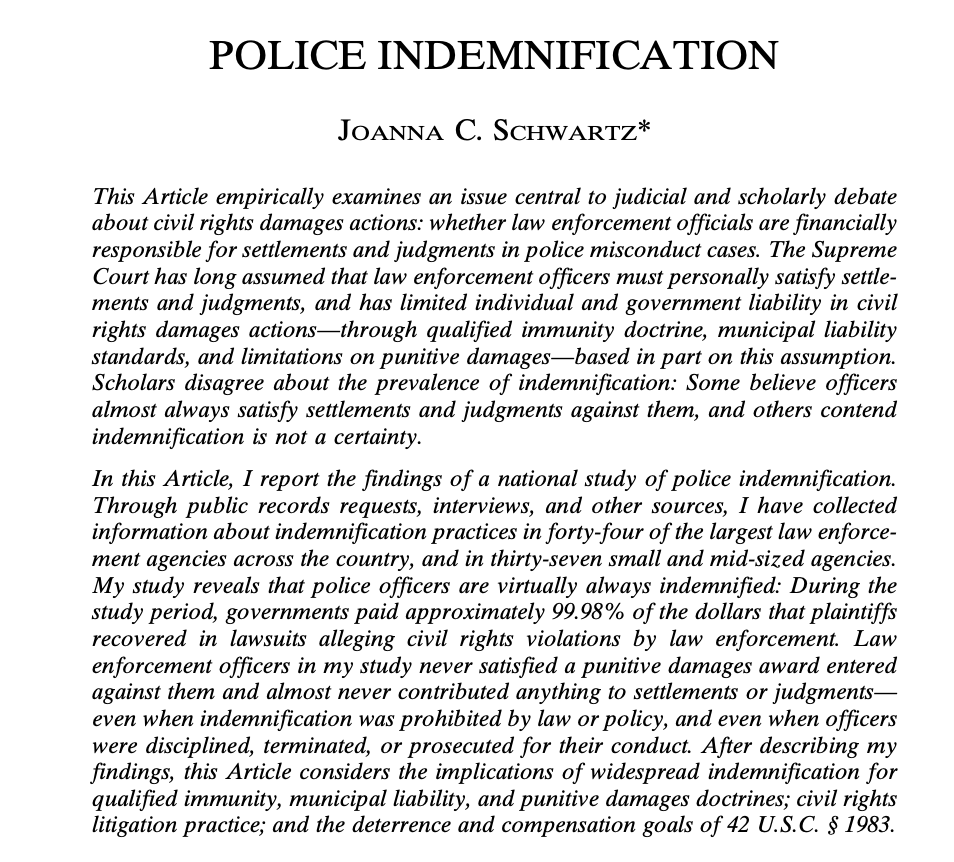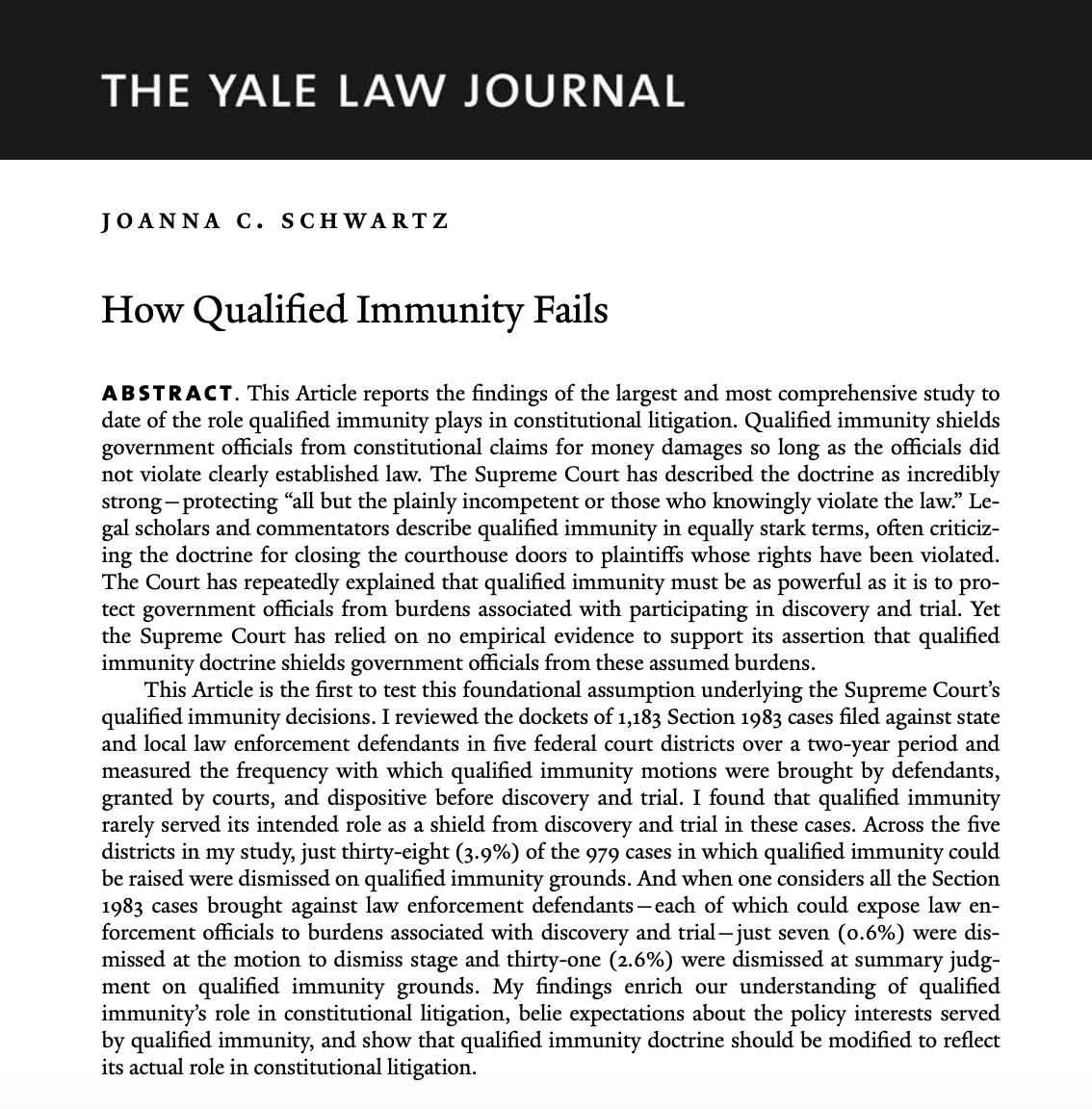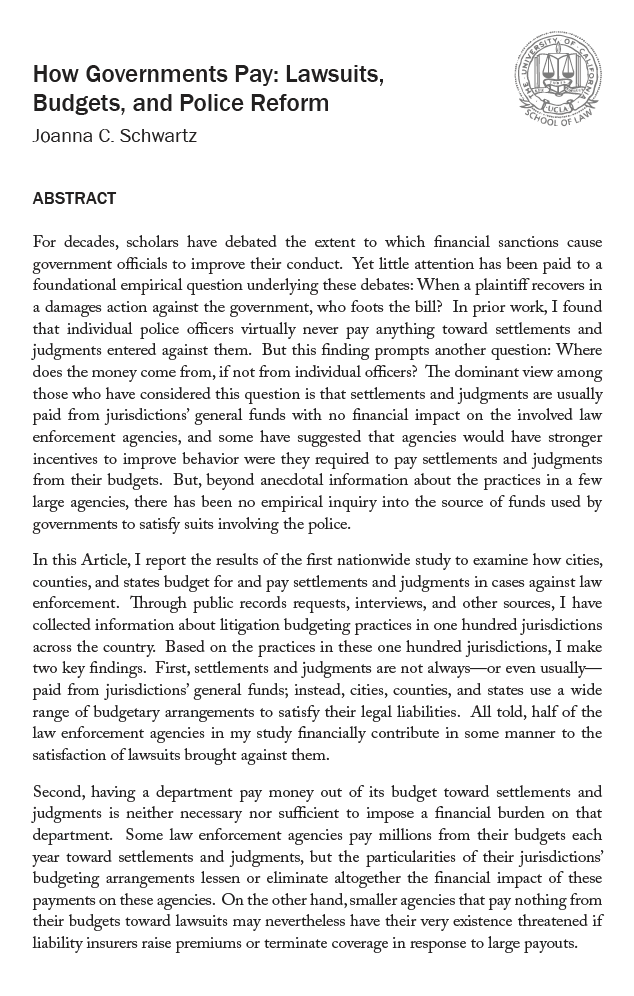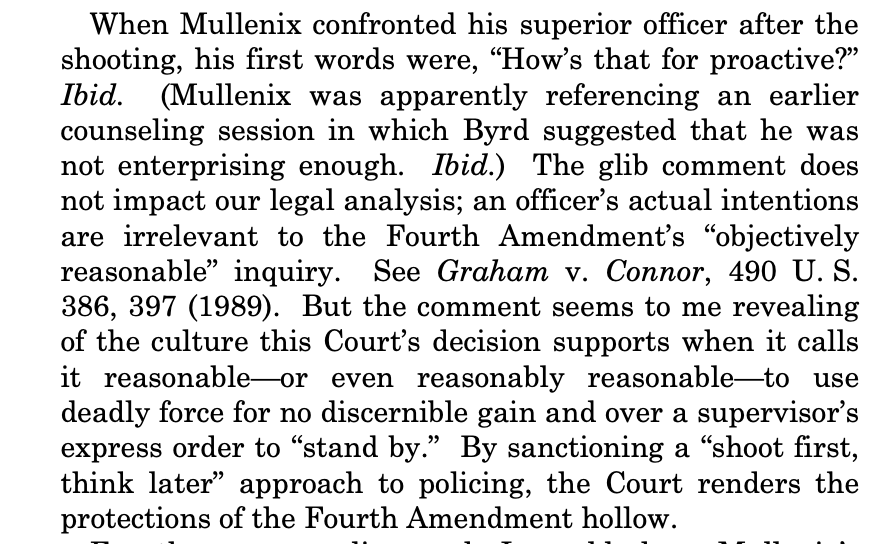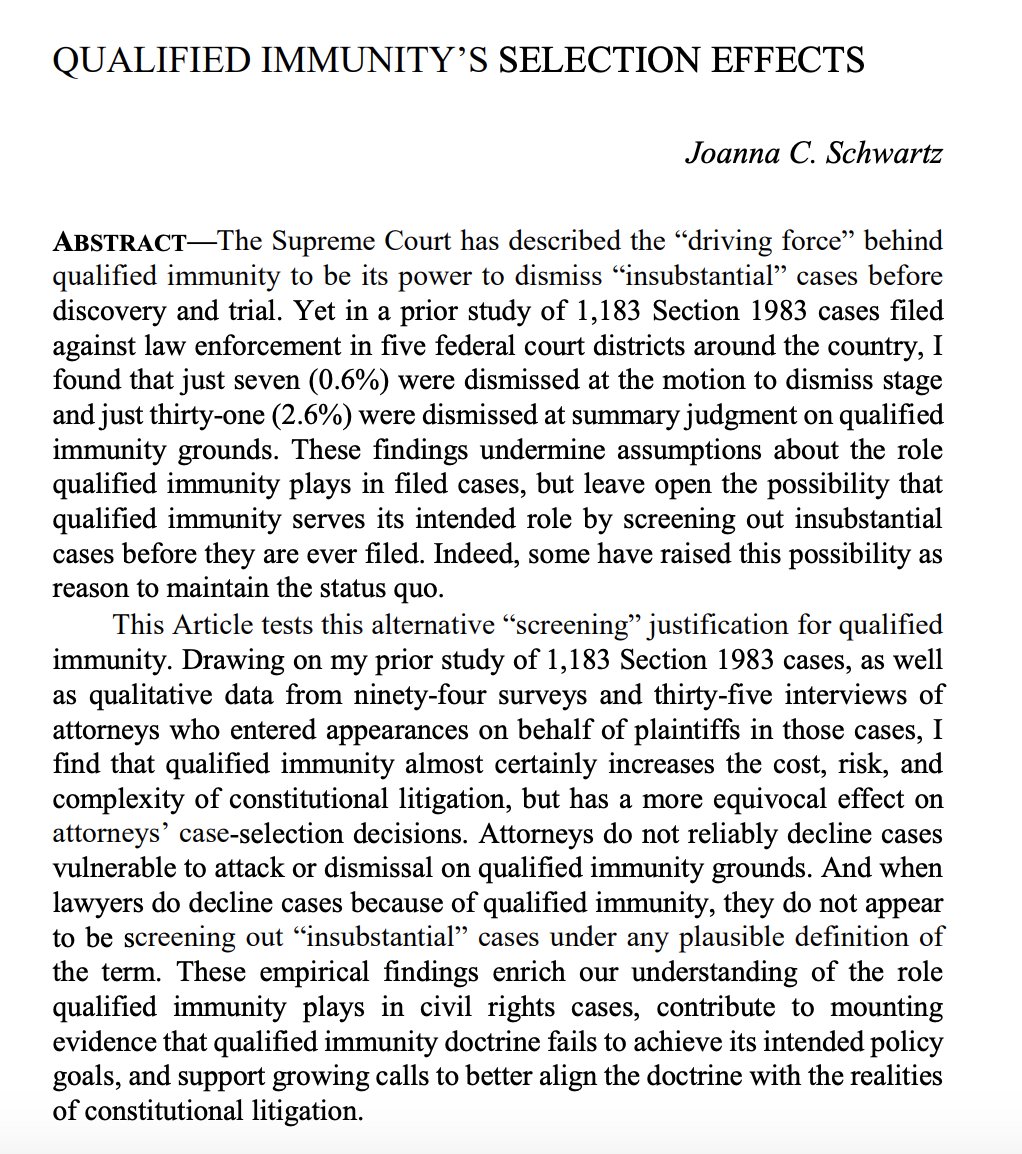I appreciate @danepps reference to my research in his @nytimes oped. I agree that abolishing qi is not a cure-all. But I disagree with the conclusion that eliminating qi is "unlikely to alter police behavior." Here& #39;s why. 1/7 https://www.nytimes.com/2020/06/16/opinion/police-qualified-immunity.html?smid=tw-share">https://www.nytimes.com/2020/06/1...
I agree that many other factors--not just qi--limit lawsuits& #39; power & have studied some that Epps describes-officers are usually indemnified, police budgets are insulated from lawsuit costs, & there are other barriers to relief, including the Court& #39;s 4th Amendment standards. 2/7
But eliminating qi would have more than symbolic power. FWIW, symbolic power on its own is important-qi decisions insulating officers despite egregious behavior tell officers they can violate people& #39;s rights with impunity & tell people their rights don& #39;t matter. H/t Sotomayor 3/7
But QI& #39;s power goes beyond symbolism. I interviewed plaintiffs& #39; attorneys across the country & found that qi increases the costs, risks, and complexity of civil rights litigation - and those challenges, and others, discourage some lawyers from taking civil rights cases. 4/7
Eliminating qi would mean that courts would clarify the scope of constitutional rights, which would lead to more clarity in police department policies and procedures. The 1st A right to record police isn& #39;t clearly established in some circuits - ending qi should change that.5/7
And ending qi would probably mean that more cases would go to trial-which would would mean more transparency and greater focus would be on what should be the critical question in these cases—whether government defendants violated plaintiffs& #39; constitutional rights.6/7
If you want to read more of my thoughts on the subject, you can @ColumLRev. https://columbialawreview.org/content/after-qualified-immunity/.">https://columbialawreview.org/content/a... Of course ending qualified immunity is not a cure-all. But it& #39;s important to be specific about what it does and does not achieve. 7/7

 Read on Twitter
Read on Twitter